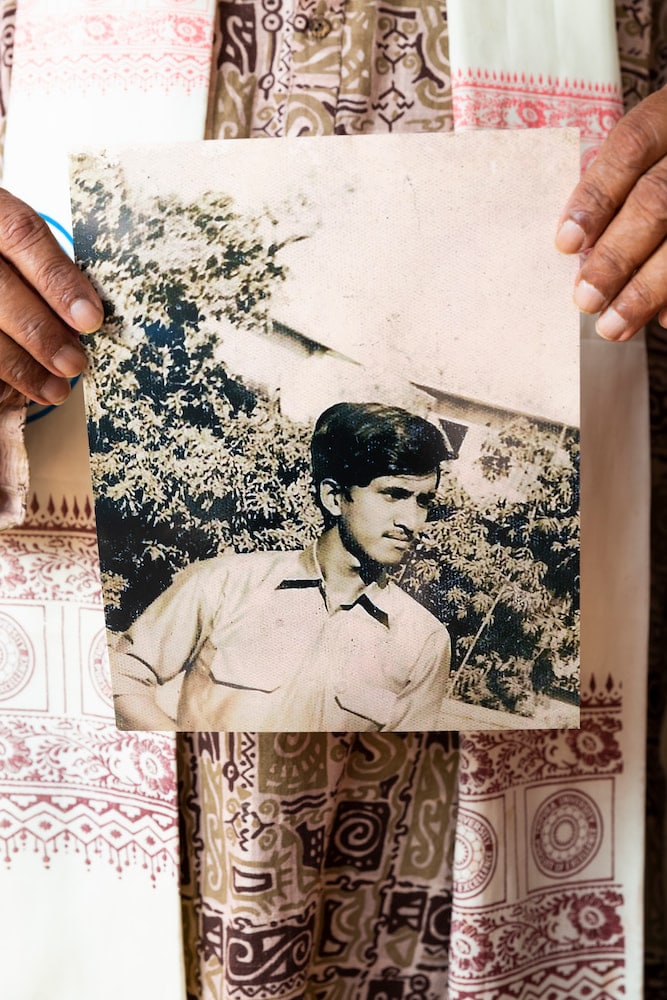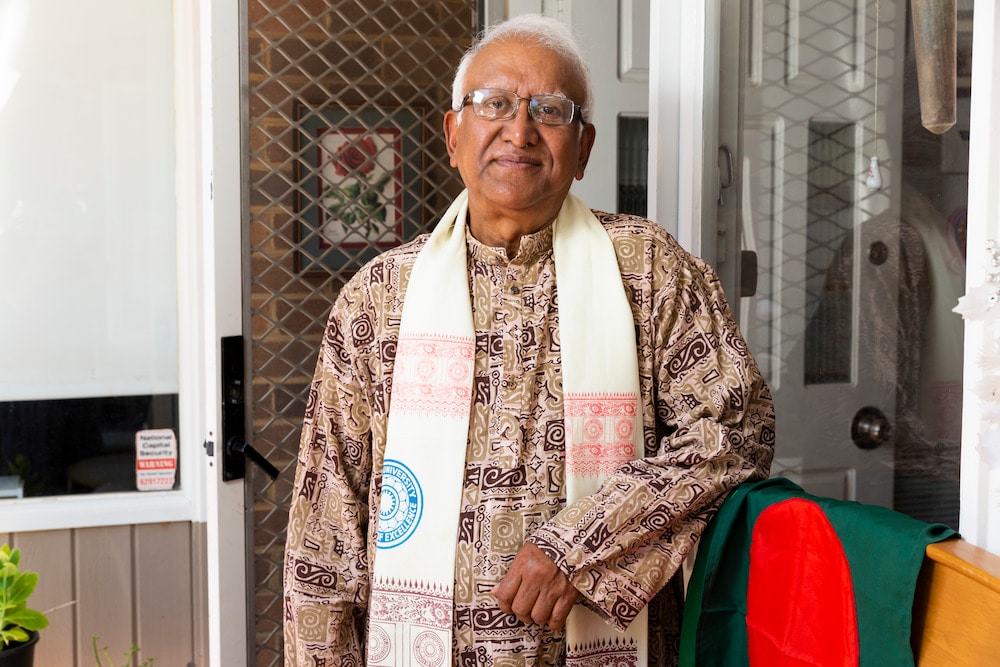This Friday marks the 50th anniversary of Bangladesh Independence Day, 26 March 1971, which one Bengali freedom fighter and Canberran, Kamrul Ahsan Khan, recalls as the beginning of his involvement in a nine-month battle to gain independence from Pakistan.
Mr Khan has lived in Canberra for over 20 years, and from his home in Lyneham, he explains why he joined the guerrilla resistance movement of military, paramilitary and civilians.
“There were a few things that happened to [Bengali people]: we were economically exploited, we were culturally exploited, all the way. All the way,” he says.
“We tried to negotiate. We tried to do it officially.”

The war was between East Pakistan (later joined by India) and West Pakistan, now Bangladesh and Pakistan.
It saw large-scale atrocities, the exodus of 10 million Bengali refugees to India and the displacement of 30 million people within what was called East Pakistan.
Mr Khan grew up as one of 13 siblings in the 17th-century old city of Dhaka, now the capital of Bangladesh.
Two of his younger brothers joined him in the liberation movement and he says the three of them “had a long journey”.
Mr Khan recalls his family’s sense of justice with pride.
“They are uncompromising, they never lie down to dishonesty. Never.
“They carry the same spirit as me, my father was the same as us, and we are carrying the same flag – honesty and patriotism.”
Bangladesh High Commissioner to Australia, Mohammad Sufiur Rahman, said the rapidly developing nation continued to be guided by the policies of social justice written by the late Sheikh Mujibur Rahman, known as the father of the nation.
Australia was the first developed country to recognise Bangladesh on 31 January 1972, and Mr Rahman said it was a “bold statement” that generated sustained goodwill towards Australia.
He praised the contribution of Dutch-Australian commando officer William Ouderland, who actively participated in the Liberation War and received a gallantry award, the Bir Protik, from the Government of Bangladesh.
Mr Ouderland is the only foreigner to have received this honour.
Mr Rahman said he hopes to see greater economic interaction between the Australia and his home country now that Bangladesh no longer relies on significant international aid.
Kamrul on becoming a Canberran
In 1994, Mr Khan and his wife, Dr Nilufar Jahan, migrated from Bangladesh to Brisbane with their two boys.
Mr Khan worked as a settlement officer at a migrant resource centre in Brisbane, and Dr Jahan studied at the University of Queensland.
The family moved to Canberra for Dr Jahan’s work a few years later, and the boys attended ACT public schools before continuing their studies at the Australian National University.
Although it was starkly different to the crowded streets of Dhaka, Mr Khan quickly grew to love Canberra.
“Every day of my life I enjoy Canberra.
“The idea of going back to Brisbane never comes to us, because we found Canberra is a beautiful city.
“Though it is quiet – just opposite of Bangladesh! Bangladesh is crowded with people. It cannot be compared at all!”
The population of Bangladesh is over 163 million, and there are more than 1,100 people per square kilometre.
In Australia, there are over 25 million people and just 3.25 people per square kilometre.
“The whole of Canberra is a garden,” he says.
In recent years, Mr Khan has raised his voice to protect the environment, as convenor of the Australian chapter of the Bangladesh Environmental Network.
“I’m still a freedom fighter, I don’t carry guns or pistols, but my mind is strong,” he says.
“This is a war. A war against pollution, a war against people who are polluting the whole world.”
In February, Mr Khan celebrated his 70th birthday, five decades since he was a university student and freedom fighter.
“I have seen extremely good people, and extremely bad people. I also learn from them,” he says.
“I’m lucky to be alive.
“I don’t have any sorrow, I always enjoy my life.”
Where to celebrate Bangladesh Independence Day
Flag raising, Friday 26 March 7.30am
A formal flag raising with freedom fighters as guests of honour at the Canberra Centre, near the ACT Memorial
Cockington Green Gardens, Sunday 28 March 5.30pm
The inauguration of a miniature National Parliament of Bangladesh at Cockington Green Gardens
For more local stories:



